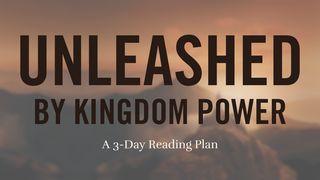UnlikelySample

Joseph
The story of Joseph emerges as the climax of Genesis—a narrative that draws together all the threads of human frailty, family dysfunction, and God’s redeeming grace. His life reveals how cycles of sin can be broken, not by human strength but by divine transformation. Betrayed by brothers, sold into slavery, and falsely imprisoned, Joseph could have allowed bitterness to define him. Instead, his story demonstrates that integrity, humility, and restoration are the tools by which sin is overpowered.
By the time Joseph steps onto the stage, the dysfunction of Jacob’s family is fully exposed. Years of rivalry and favouritism had left wounds that festered. Joseph, favoured as the son of Rachel, was despised by his brothers, who could not see past their own pain. Their betrayal seemed final: throwing him into a pit, selling him to traders, and convincing their father he was dead. Yet the very act meant for destruction became the beginning of God’s redemptive plan.
Joseph’s journey in Egypt reveals the hidden strength of a life anchored in God. Even as a slave, he gained favour because of his integrity. He refused to compromise, even when temptation could have offered escape or comfort. Integrity is not defined by circumstances but by allegiance. Though his situation was unjust, Joseph chose to live as though God was watching—which He was.
When falsely accused and imprisoned, Joseph again chose faithfulness over despair. Rather than wallowing in victimhood, he served others. He interpreted the dreams of fellow prisoners, not for personal gain but as an act of humility. His willingness to serve in obscurity prepared him for the moment when God would elevate him to prominence. What seemed like wasted years in prison were, in reality, years of formation.
Eventually, Joseph’s integrity and humility positioned him before Pharaoh, where God’s wisdom in him was recognised. He rose from prisoner to ruler, overseeing Egypt during a time of famine. The same man who had been betrayed by his brothers now held the power to save nations. His life stands as testimony that no pit is too deep, no betrayal too final, and no prison too strong for God’s purposes to prevail.
The defining moment comes when Joseph’s brothers, unaware of his identity, come seeking food. Here, the cycle could have continued. He could have chosen revenge, mirroring the contempt that had marked their family for generations. Instead, Joseph chose restoration. He revealed himself with tears, assuring his brothers that what they intended for harm, God used for good. Forgiveness, not vengeance, marked the end of the story.
Restoration rippled outward. Joseph reconciled with his brothers, embraced his father again, and provided for his family in a time of need. What sin had fractured, grace restored. The cycle of deceit, rivalry, and bitterness broke—not because the family suddenly became flawless, but because one man chose God’s way over resentment.
Joseph’s story teaches that sin is bountiful in its consequences, but grace is abundant in its restoration. The brothers carried guilt for years, convinced they were beyond redemption. Yet Joseph’s forgiveness lifted the weight of shame and replaced it with reconciliation. In this way, repentance became boldness—not only for Joseph but for his entire family.
This is the hope held out for every believer today. Families may bear the scars of past mistakes. Communities may feel the weight of broken trust. Individuals may carry guilt for choices long ago. But Joseph’s life reminds us that sin is not the final word. Restoration is possible. Forgiveness is stronger than resentment. Grace is greater than generational cycles.
The challenge, then, is to embody the same qualities that marked Joseph’s transformation. Integrity in the unseen moments, when compromise seems easier. Humility in the lowest places, when pride whispers that life is unfair. A heart of restoration, when vengeance feels justified. These are not extraordinary acts reserved for biblical heroes; they are daily choices made by ordinary people who trust in an extraordinary God.
Joseph’s story also speaks to the larger mission of God’s people. His position in Egypt was not just for personal vindication but for the preservation of many lives. The same principle holds today. When believers choose integrity, humility, and restoration, the impact extends beyond personal healing. Families are strengthened, communities are renewed, and the watching world sees a glimpse of God’s kingdom.
In the end, Genesis does not leave readers with a perfect family or an unbroken line of faith. It leaves them with a redeemed story—a family marked by weakness, yet carried by grace. This is the invitation for every person: to believe that God can take the unlikely, the flawed, and the broken, and weave redemption through their lives.
No one is too far gone, no failure too great, no history too damaged. The God who turned betrayal into salvation in Joseph’s life is the same God who works today. He calls His people not to perfection, but to faithfulness. To turn one degree closer to Him, to trust His promises, and to believe that even the darkest moments can be used for good.
The unlikely figures of Genesis remind us that God’s story is never derailed by human weakness. Instead, it is in weakness that His strength is revealed. Just as Joseph’s integrity overcame temptation, his humility overcame despair, and his forgiveness overcame hatred, so too can believers today experience the same power when they surrender to God.
The conclusion of Genesis is not the triumph of humanity, but the triumph of God’s grace. It is a story of fractured families restored, of broken people redeemed, and of unlikely individuals chosen to shape history. And it is a reminder that the same God still chooses unlikely people today.
About this Plan

Unlikely is a journey through the lives of ordinary people God used in extraordinary ways. From Joseph to Barnabas to Moses, each story reveals how weakness, failure, and obscurity are no barrier to God’s call. These unlikely figures remind us that encouragement, courage, and faith are forged in everyday moments, and that God’s presence makes the impossible possible. As you read, you’ll be invited to see yourself in their stories, to pay attention to the burning bushes in your own life, and to trust that God is not finished with you yet.
More
Related plans

Unleashed by Kingdom Power

Admonishment: Love’s Hard Conversation

Love That Lasts: 30 Days in God’s Word

Living in God’s Peace: A 12-Day Journey Through Scripture

Gather for Advent

Find Hope in God's Unfailing Love

From Creation to Calling

16 Days in Mark

Making Peace With Fire
